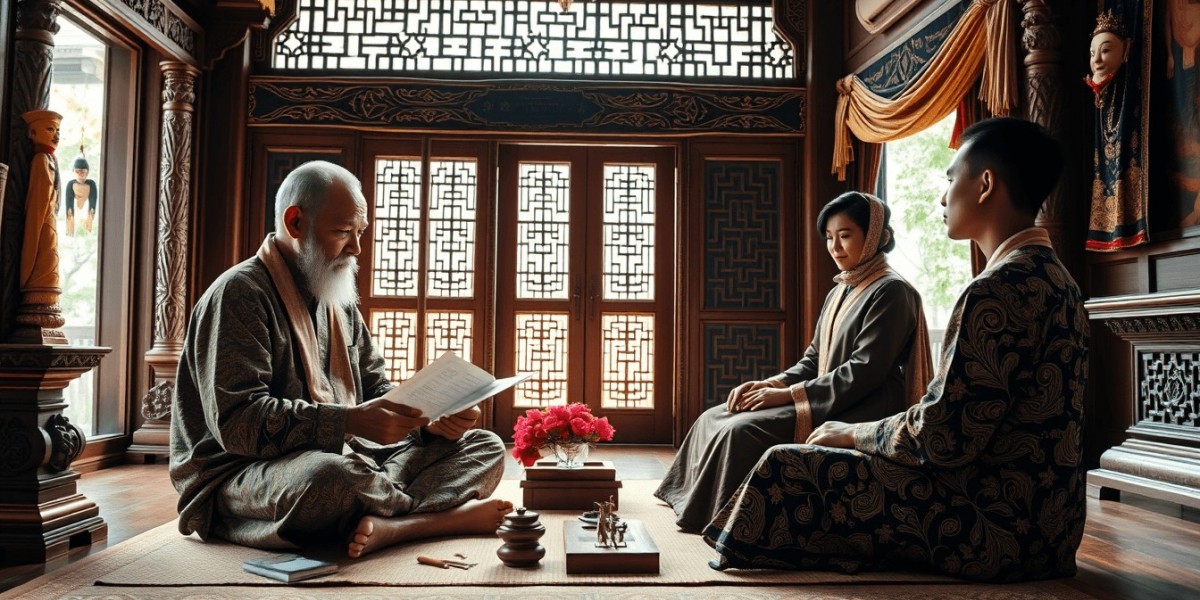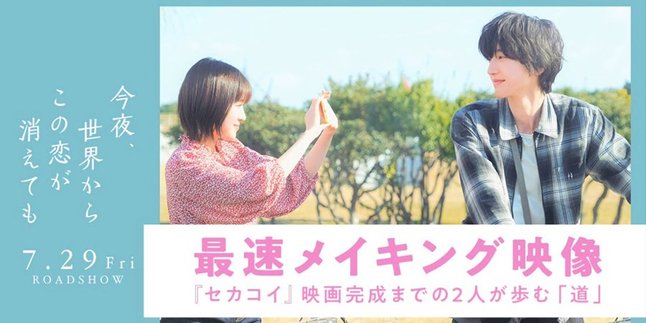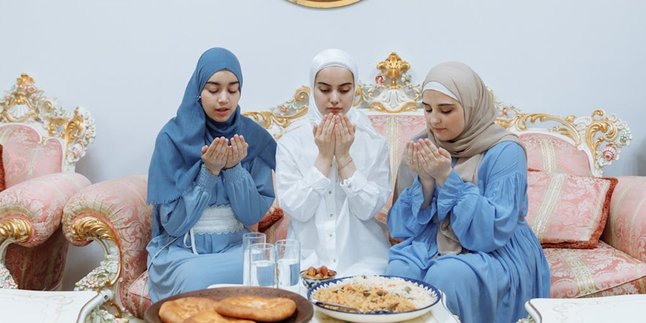
Javanese Weton Calculation for Primbon Weddings: Complete Guide
In Javanese culture, weton calculation for weddings is a tradition that is still strongly held by some communities. Weton is believed to provide insights into the compatibility of partners and the fate of marriage in the future. This article will delve deeply into Javanese weton calculation for weddings based on primbon, covering definitions, calculation methods, and the meanings behind them.
1. Understanding Weton and Primbon in Javanese Culture
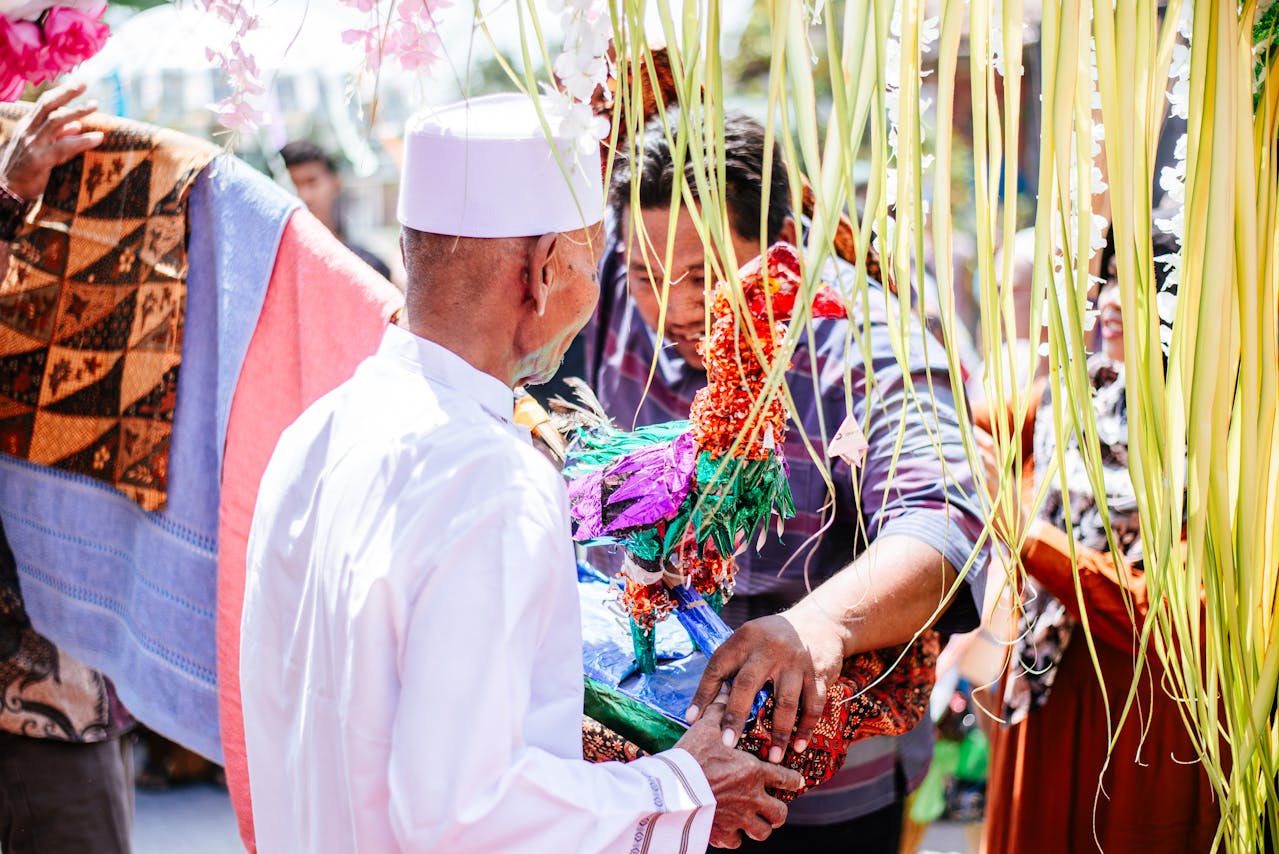
Javanese traditional wedding (credit: pexels.com)
Weton is a combination of a person's birth date in the Gregorian calendar (7 days) with the market day in the Javanese calendar (5 days). For example, someone born on a Monday with the market day Kliwon has a weton of Monday Kliwon. Weton is believed to influence a person's character, destiny, and compatibility with others.
Primbon itself is a collection of traditional knowledge of the Javanese people that has been passed down through generations. Primbon contains various calculations and predictions related to human life, including marriage. Although it may seem mystical, primbon is actually the result of observations and life experiences of Javanese ancestors over centuries.
In the context of marriage, the weton of the prospective bride and groom is used as a basis to calculate and determine a day that is considered auspicious for holding the marriage ceremony. This calculation involves adding the numerical values (neptu) of the days and market days of both prospective partners.
2. History and Tradition of Determining the Wedding Date in Javanese Culture
The tradition of determining an auspicious day for the wedding ceremony has been deeply rooted in Javanese culture for centuries. This practice stems from the belief that each day has its own energy and characteristics that can influence a person's life journey. In the era of ancient Javanese kingdoms, palace astrologers played a crucial role in determining auspicious days for various important royal activities, including the marriages of noble families.
Over time, the knowledge of calculating auspicious days was codified in the form of primbon. Primbon became a sort of practical guide for the Javanese people in navigating various aspects of life, including marriage. Although times have changed, the tradition of determining an auspicious day for the wedding ceremony is still preserved by some Javanese communities.
In the process, the families of both prospective brides and grooms usually consult with elders or primbon experts to determine the most appropriate day. Factors such as the weton of both brides and grooms, favorable months in the Javanese calendar, and various other practical considerations will be taken into account in the decision-making process.
3. How to Calculate Weton and Neptu
To understand the Javanese weton calculation for marriage, we need to know how to calculate weton and neptu. Here are the steps:
1. Determining Weton
Weton consists of the birth date (in the Gregorian calendar) and the market day (in the Javanese calendar). To find out the weton, you need to find out the market day that coincides with the birth date. This can be done through a Javanese calendar or using an online weton calculator.
2. Calculating Neptu
Each day and market day has its own numerical value (neptu). Here are the neptu values for each day and market day:
Neptu for Days:
- Sunday: 5
- Monday: 4
- Tuesday: 3
- Wednesday: 7
- Thursday: 8
- Friday: 6
- Saturday: 9
Neptu for Market Days:
- Kliwon: 8
- Legi: 5
- Pahing: 9
- Pon: 7
- Wage: 4
To calculate someone's neptu, add the neptu value of the birth day to the value of the market day.
3. Calculating the Neptu of Both Prospective Brides and Grooms
After knowing the neptu of each prospective bride and groom, add them together. This sum will be used to determine the auspicious wedding day.
Calculation Example:
Suppose the prospective groom was born on Monday Kliwon, then his neptu is:
- Neptu Monday: 4
- Neptu Kliwon: 8
- Total: 4 + 8 = 12
Meanwhile, the prospective bride was born on Friday Legi, so her neptu is:
- Neptu Friday: 6
- Neptu Legi: 5
- Total: 6 + 5 = 11
The total neptu of both prospective brides and grooms: 12 + 11 = 23
It is the number 23 that will be used as a basis for determining the auspicious wedding day according to Javanese primbon.
4. Determining Auspicious Days for Marriage Ceremony
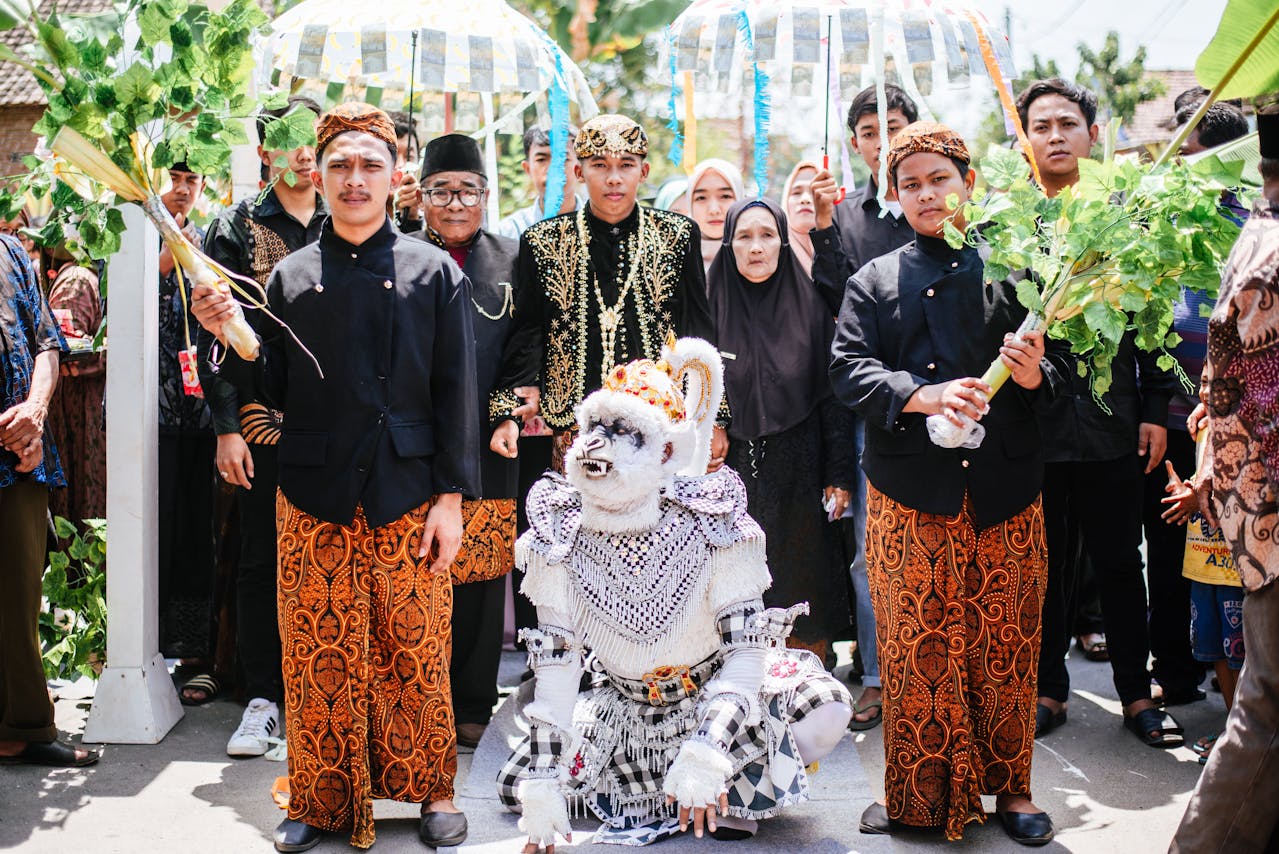
Javanese traditional wedding (credit: pexels.com)
After knowing the total neptu of both prospective brides and grooms, the next step is to determine the day considered good for the marriage ceremony. In Javanese tradition, there are several methods used to determine this auspicious day. Here is one commonly used method:
Formula for Determining Auspicious Days
The basic formula is as follows:
(Total neptu of both prospective brides and grooms + Auspicious Day) : 5 = Remainder 3
The number 3 is considered a good number in Javanese tradition. Therefore, the goal is to find a day that when added to the neptu of both prospective brides and grooms and divided by 5, will yield a remainder of 3.
Steps for Determination:
- Take the total neptu of both prospective brides and grooms that has been calculated previously.
- Try adding it to the neptu of the days of the week (see the neptu day table above).
- Divide the sum by 5.
- If the result leaves a remainder of 3, then that day is considered good for the marriage ceremony.
Calculation Example:
Suppose the total neptu of both prospective brides and grooms is 23 (as in the previous example).
We can try adding it to the neptu of Sunday (5):
- 23 + 5 = 28
- 28 : 5 = 5 remainder 3
Since the result leaves a remainder of 3, Sunday is considered a good day for the marriage ceremony for the couple.
Additional Considerations
In addition to the above calculations, there are several other factors to consider when determining a good day, including:
- Avoid days considered taboo, such as the anniversary of an ancestor's death.
- Pay attention to the months deemed auspicious in the Javanese calendar.
- Adjust according to the availability of places and times that are feasible for both families.
It is important to remember that the determination of a good day is flexible and can be adjusted according to the needs and conditions of each family. The most important thing is the good intentions and sincerity of both brides and grooms in embarking on married life.
5. Good Months for Marriage According to Javanese Primbon
In Javanese tradition, besides the day, the month is also an important consideration in determining the right time to hold a wedding. Each month in the Javanese calendar is believed to have its own characteristics and influences on human life. Below is a guide regarding the months that are considered good and less favorable for marriage according to Javanese primbon:
Months Considered Good:
- Bakda Mulud (Rabiul Akhir): Believed to bring happiness and harmony in the household.
- Jumadil Akhir: Thought to bring prosperity and wealth to the couple.
- Rejeb: Considered to bring safety and many friends.
- Ruwah: Believed to bring safety and blessings.
- Besar: Thought to bring joy and safety in the household.
Months to Avoid:
- Suro (Muharram): Considered a sacred month and should be avoided for major events such as weddings.
- Sapar: Believed to bring shortages and many debts.
- Poso (Ramadhan): As a fasting month, it is usually avoided for wedding events.
- Dulkaidah: Believed to bring shortages, illness, and quarrels.
Neutral Months:
- Mulud (Rabiul Awal)
- Jumadil Awal
- Syawal
These months are considered neutral and can be used for weddings, depending on the calculation of auspicious days and other considerations.
Practical Considerations
Although the primbon provides guidance on good and bad months, in practice, many families also consider practical factors such as:
- Availability of time and venue
- Weather conditions (for example, avoiding the rainy season)
- Availability of invited guests
- Economic and financial considerations
It is important to remember that this guidance is flexible and can be adjusted to the needs and beliefs of each family. The most important thing is the good intentions and readiness of both parties in embarking on married life.
6. Determining Auspicious Times for Marriage Ceremony
In addition to the day and month, the time of the marriage ceremony also becomes a focus in Javanese tradition. Choosing the right time is believed to bring luck and blessings for the couple. Here is a guide to determine the auspicious time for the marriage ceremony according to Javanese primbon:
Basic Concept
In Javanese tradition, each hour of the day has its own characteristics and energy. The selection of a good hour is usually based on several factors:
- The neptu of the wedding day
- The direction the bride and groom face during the ceremony
- The position of the sun
Time Division According to Primbon
Generally, the time in a day is divided into several periods with different characteristics:
- 06.00 - 08.00: Considered good for starting something new
- 08.00 - 10.00: A good time for seeking sustenance
- 10.00 - 12.00: Believed to bring safety
- 12.00 - 14.00: Break time, should be avoided
- 14.00 - 16.00: Good for social activities
- 16.00 - 18.00: Considered less favorable, should be avoided
- 18.00 - 20.00: A good time for family gatherings
Determining the Hour Based on the Neptu of the Day
One method to determine a good hour is by using the neptu of the wedding day. The steps are:
- Calculate the neptu of the wedding day (neptu of the day + neptu of the market day)
- Divide the neptu result by 3
- Look at the remainder of the division:
- Remainder 1: Choose a time between 09.00 - 11.00
- Remainder 2: Choose a time between 13.00 - 15.00
- Remainder 0: Choose a time between 16.00 - 18.00
Practical Considerations
Although the primbon provides guidance, there are several practical matters to consider when determining the time of the marriage ceremony:
- Comfort of the invited guests
- Availability of the KUA officer or marriage officiant
- Prayer times (if relevant)
- Weather conditions (especially for outdoor events)
- Schedule of the venue or event location
Flexibility in Application
It is important to remember that the determination of this auspicious hour is flexible. If there are practical constraints, it is acceptable to adjust the ceremony time to fit the needs and conditions at hand. What matters most is the good intentions and sincerity of both parties in experiencing this sacred moment.
7. The Meaning Behind Weton Calculation
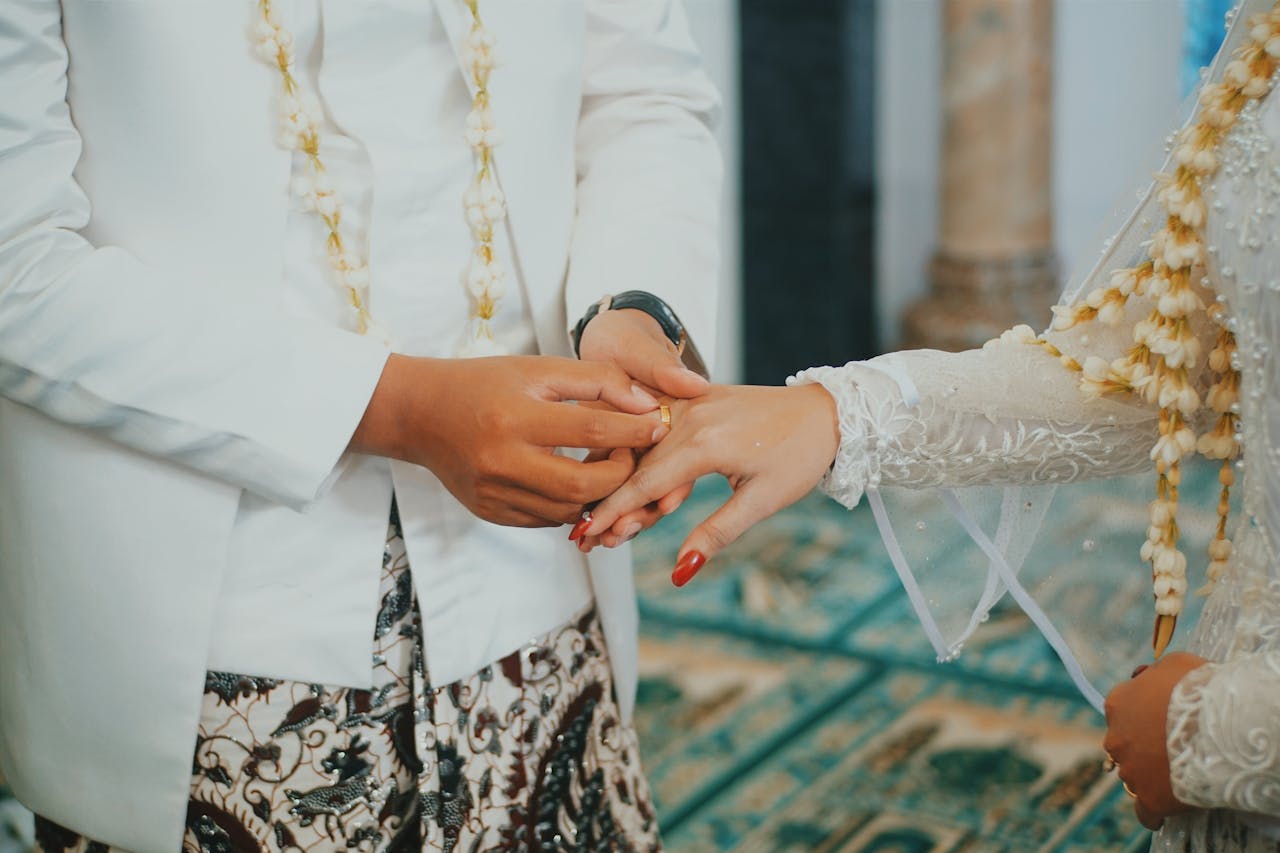
Javanese traditional wedding (credit: pexels.com)
The calculation of weton in Javanese tradition is not just numbers without meaning. Behind every calculation, there is a deep philosophy and moral message. Here are some meanings contained in the weton calculation for marriage:
1. Harmony with Nature
The concept of weton reflects the Javanese belief in a close relationship between humans and the universe. By choosing the right day, it is hoped that the couple can live in harmony with the energy of nature, which in turn will bring harmony to the household.
2. Respect for Ancestors
Preserving the tradition of weton calculation is a form of respect for the wisdom of ancestors. It reflects an attitude of respect for cultural heritage and the life experiences of previous generations.
3. Mental Preparation
The process of calculating and choosing a good day gives the prospective bride and groom time to prepare themselves mentally. This can be seen as a period of reflection and preparation before entering a new chapter of life.
4. Symbol of Precision and Caution
The complex calculations in weton teach the importance of precision and caution in making significant decisions such as marriage. This serves as a reminder that marriage is not something to be taken lightly.
5. Harmony in Differences
The concept of combining the weton of two different individuals reflects the philosophy of harmony in differences. It teaches that in marriage, two different personalities can unite and complement each other.
6. Attitude of Surrender and Effort
Even though there are calculations, the final outcome is still left to the will of God. This teaches the balance between effort (ikhtiar) and acceptance (tawakal) in living life.
7.Wisdom in Facing Challenges
The interpretation of the weton calculation often provides a picture of potential challenges in the household. This is not to instill fear, but as preparation so that couples can be wiser in facing various situations in the future.
8.The Importance of Deliberation
The process of determining an auspicious day usually involves discussions between both families. This teaches the importance of deliberation and joint decision-making within the family.
Understanding the meaning behind the weton calculation can help us see this tradition not merely as an empty ritual, but as local wisdom rich in values. However, it is important to remember that the essence of marriage lies in the commitment and love between the two parties, not solely in numerical calculations.
8. Additional Tips in Determining Marriage Ceremony Day
In addition to following the primbon calculations, there are several additional tips that can be considered when determining the wedding ceremony date. These tips blend traditional wisdom with practical considerations in the modern era:
1. Consult an Expert
If you feel unsure about your own calculations, it doesn't hurt to consult with a trusted elder or primbon expert. They usually have deeper knowledge and can provide a more comprehensive interpretation.
2. Consider Religious Aspects
For those who are Muslim, make sure the chosen day does not coincide with days that are prohibited for marriage according to religious teachings. For example, avoid the days of tasyrik or the month of Muharram.
3. Align with the National Calendar
Pay attention to the national calendar to avoid coinciding with national holidays or other significant days that may make it difficult for invited guests to attend.
4. Consider the Season
If planning to hold an outdoor event, consider the ongoing season. Avoid the rainy season if you don't want the event to be disrupted by weather.
5. Adjust to Work Schedules
Choose a day that is feasible for the majority of invited guests to attend, such as weekends or holidays.
6. Pay Attention to Venue Availability
Ensure that the venue or event location is available on the specified day. Some popular venues may be fully booked well in advance.
7. Coordinate with Vendors
Make sure that essential vendors such as catering, decoration, and documentation are available on the chosen day.
8. Consider the Budget
Some specific days or months may have higher rental prices for venues or vendor services. Adjust to the budget you have.
9. Be Flexible in Implementation
If there are obstacles in applying the results of the calculations, do not hesitate to compromise a little. The most important thing is good intentions and the comfort of all parties.
10. Discuss with Your Partner and Family
Make sure the chosen day is the result of a mutual agreement between both parties and their families. This will help create harmony from the very beginning of the wedding preparations.
By considering the tips above, it is hoped that the process of determining the wedding date can run more smoothly and result in a decision that satisfies all parties. Remember that the essence of marriage lies not in the day of its implementation, but in the commitment and love between the two parties.
9. Benefits of Determining Marriage Ceremony Day Through Javanese Primbon
Although many consider primbon to be something ancient or irrelevant in this modern era, there are actually several benefits that can be gained from the process of determining the wedding date through Javanese primbon. Here are some of the benefits:
1.Preserving Cultural Heritage
By continuing to use primbon, we contribute to preserving our ancestors' cultural heritage. This is important for maintaining identity and local wisdom amidst the currents of globalization.
2.Strengthening Family Bonds
The process of determining a good day usually involves discussions between both extended families. This can be a moment to strengthen relationships and communication among family members.
3.Providing a Sense of Calm
For those who believe, the results of the primbon calculations can provide a sense of calm and confidence that the chosen wedding date is a good day.
4. As a Means of Introspection
The process of calculating and interpreting weton can be a moment of introspection for the bride and groom regarding their character and potential.
5.Increasing Awareness of Time
The detailed calculations of primbon teach us to appreciate and understand the concept of time within the context of Javanese culture.
6.As Learning Material
For the younger generation, this process can serve as a learning tool about Javanese culture and philosophy.
7.Creating Uniqueness
Using primbon to determine the wedding date can add a unique touch to the wedding event, especially in this modern era.
8.Respecting Family Traditions
For families that still hold firmly to traditions, using primbon can be a form of respect for the values upheld by previous generations.
9.As a Guide for Mental Preparation
The interpretation of primbon calculations can serve as a guide for the bride and groom to prepare themselves for the challenges of married life.
10.Increasing Appreciation for Local Wisdom
Studying and using primbon can enhance our appreciation for local wisdom and the complexity of Javanese ancestral thought.
However, it is important to remember that these benefits are subjective and depend on each individual's beliefs. For those who do not believe in primbon, this process may only be seen as a formality or even considered irrelevant. The most important thing is how the couple and their families can reach an agreement and mutual comfort in determining the wedding date.
10. Myths and Facts About Javanese Primbon
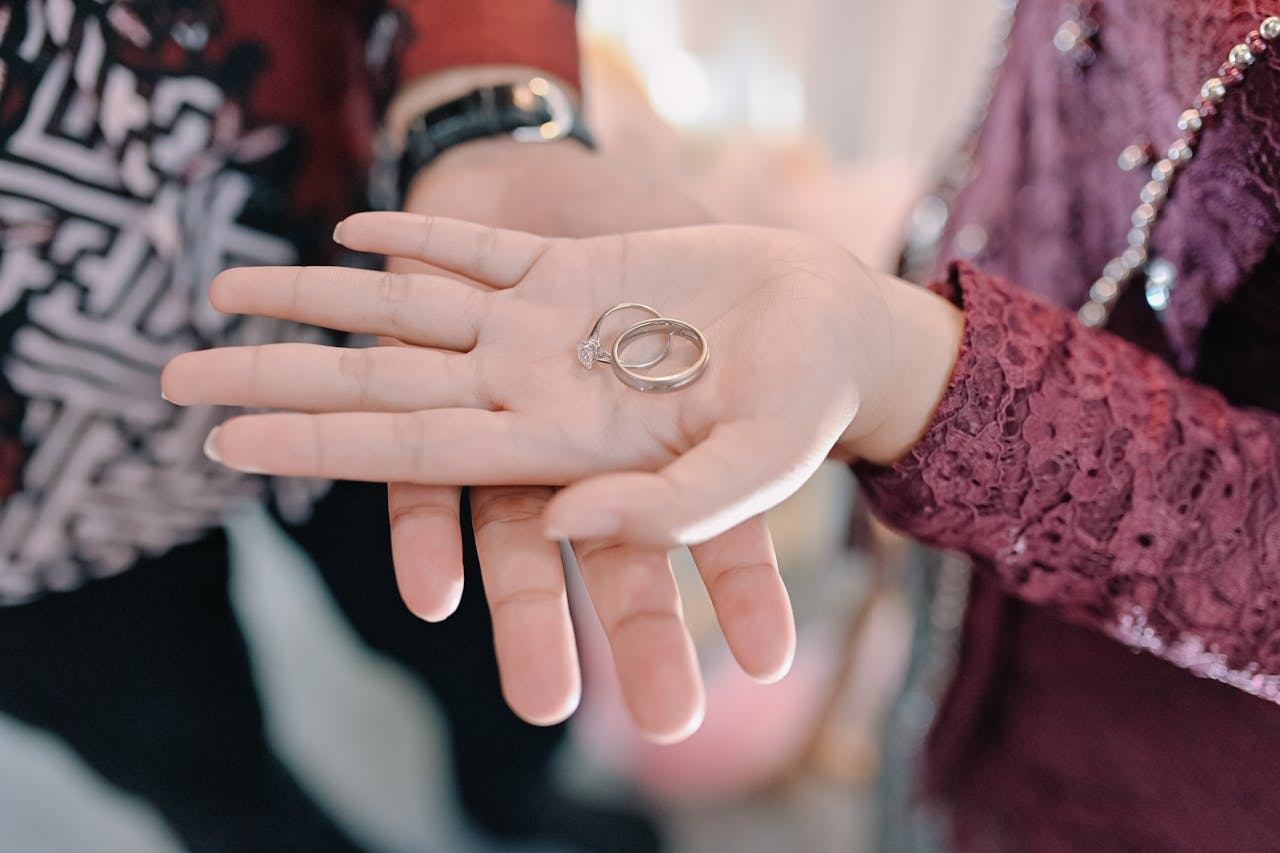
Javanese traditional wedding (credit: pexels.com)
As time progresses, many myths and misunderstandings circulate regarding Javanese primbon, especially in the context of determining the wedding date. Here are some common myths along with the facts:
Myth 1: Primbon is a Definitive Science
Fact: Primbon is not a definitive science like mathematics or physics. It is more a collection of experiences and observations from Javanese ancestors that have been passed down through generations. Its interpretation can vary depending on the primbon expert interpreting it.
Myth 2: Ignoring Primbon Will Bring Bad Luck
Fact: There is no scientific evidence that ignoring primbon will directly bring bad luck. Success or failure in a household is more determined by the commitment, communication, and efforts of the couple in living together.
Myth 3: All Javanese People Still Use Primbon
Fact: Although some still use it, not all Javanese people use primbon to determine their wedding date. Many choose based on practical considerations or religious beliefs.
Myth 4: Primbon Conflicts with Religion
Fact: For some, primbon is seen as part of local wisdom that does not conflict with religion as long as it does not associate partners with God. However, this interpretation can vary depending on individual understanding and the religious sect followed.
Myth 5: The Results of Primbon Calculations are Absolute
Fact: In practice, the results of primbon calculations are often flexible and can be adjusted to the conditions and needs of the family. The most important thing is to reach an agreement that is comfortable for all parties.
Myth 6: Primbon is Only Used for Negative Things
Fact: Although some misuse primbon for negative purposes, fundamentally, primbon is a collection of knowledge aimed at guiding humans to live a better life.
Myth 7: Primbon is Not Relevant in the Modern Era
Fact: For some people, primbon is still considered relevant as part of cultural identity and local wisdom. However, its application may have been adjusted to modern contexts.
Myth 8: All Primbon Calculations are the Same
Fact: There are various versions and interpretations in primbon calculations. Some regions in Java may have different variations or emphases in their application.
Myth 9: Primbon is Only for the Elderly
Fact: Although often associated with the older generation, there are also younger generations interested in studying primbon as part of cultural preservation.
Myth 10: Using Primbon Means Not Believing in God
Fact: For many of its adherents, the use of primbon is seen as a form of effort or endeavor, while the final outcome is still entrusted to God's will.
Understanding the myths and facts surrounding Javanese primbon can help us approach this tradition more wisely. It is important to appreciate the local wisdom contained within it, while remaining critical and open to the developments of the times and modern science.
11. Relevance of Javanese Primbon in the Modern Era
In the midst of modernization and globalization, questions arise about the extent to which Javanese primbon, particularly in the context of determining the day of marriage, is still relevant. Here are some perspectives on the relevance of Javanese primbon in the modern era:
1. Preservation of Cultural Heritage
Javanese primbon is an integral part of Indonesia's cultural heritage. In an era where many local traditions are threatened with extinction, efforts to understand and preserve primbon can be seen as an important step in maintaining the nation's cultural wealth. Studying primbon does not mean it must be applied rigidly, but rather it can serve as a means to understand the way of thinking and life philosophy of Javanese ancestors.
2. Adaptation to Modern Context
Some modern primbon practitioners have sought to adapt the concepts of primbon to contemporary contexts. For example, by integrating modern psychological understanding in the interpretation of weton, or using digital technology to facilitate calculations. This shows that primbon can adapt and remain relevant in the digital era.
3.As an Alternative Amid Uncertainty
In an era full of uncertainty, some people may feel that primbon provides a kind of guidance or framework in making important decisions such as marriage. Although it is not scientific, for some, it can provide a sense of calm and confidence.
4.Reinforcement of Cultural Identity
Amid the currents of globalization, primbon can be one way to strengthen cultural identity. For the young Javanese generation, studying primbon can serve as a bridge to better understand their cultural roots.
5.As an Object of Academic Study
Primbon has become an interesting object of study for academics, especially in the fields of anthropology, sociology, and cultural studies. Research on primbon can provide valuable insights into the mindset and belief systems of the Javanese people.
6. Integration with Cultural Tourism
In the context of cultural tourism, primbon can be a unique attraction that draws the interest of tourists, both domestic and international. This can be a way to introduce the richness of Javanese culture to a wider audience.
7. As a Means of Reflection
The process of calculating and interpreting weton can be a moment of reflection for couples who are about to marry. This can help them to better understand themselves and their partner, as well as prepare for the challenges of married life.
8. Flexibility in Application
In the modern era, many families are taking a more flexible approach in applying primbon. They may still perform calculations as a form of respect for tradition, but are not too rigid in its application.
9. As Material for Cross-Generational Discussion
Primbon can be an interesting topic for cross-generational discussions. This can serve as a bridge of communication between the older generation, who may still hold on to traditions, and the younger generation, who are more critical and skeptical.
10.Inspiration for Innovation
Concepts in primbon can serve as inspiration for innovation in various fields, ranging from design, art, to the development of digital applications that integrate local wisdom.
Although its relevance may vary for each individual or community group, Javanese primbon remains an important part of the cultural mosaic of Indonesia. The most important thing is how we can respond to this cultural heritage wisely, appreciating the positive values contained within it, while still being critical and open to the developments of the times.
12. The Influence of Javanese Primbon on Marriage Life
Although Javanese primbon is often considered an ancient tradition, its influence on marriage life can still be felt today. Here are some ways in which Javanese primbon can influence marriage life:
1.Mindset Formation
The results of primbon calculations can influence the mindset of couples in navigating married life. For example, if the results indicate a good compatibility, the couple may be more optimistic in facing household challenges. Conversely, if the results are less favorable, they may be more cautious and strive harder to maintain harmony.
2.Mental Preparation
The process of calculating and interpreting weton can serve as a means of mental preparation for the prospective bride and groom. It gives them time to reflect on their relationship and prepare themselves for married life.
3. Guidelines for Facing Challenges
Interpretation of primbon often provides an overview of potential challenges that may be faced in a household. This can serve as a guide for couples to be more prepared to face difficult situations.
4. Strengthening Family Bonds
The process of determining a good day based on primbon usually involves both families. This can strengthen the bonds between families and create a sense of togetherness from the very beginning of the marriage.
5. Psychological Influence
Belief in the results of primbon can have psychological effects on the couple. For example, if they believe they have chosen a good day, it can provide a sense of confidence and calmness in navigating their marriage.
6. Guidance in Decision Making
Some couples may use the principles of primbon as one of the considerations in making important decisions in the household, such as choosing a place to live or the right time to have children.
7. Preservation of Cultural Values
By maintaining the primbon tradition, couples indirectly help preserve Javanese cultural values in their modern lives. This can become a legacy passed down to their children.
8. Influence on Conflict Resolution
Understanding of weton and primbon may influence how couples resolve conflicts. For example, they may be more patient and wise in facing problems, considering the "predictions" about the challenges they might encounter.
9. Formation of Rituals in Household
Some couples may adopt certain rituals in their household life based on their understanding of primbon, such as holding selamatan on specific days.
10. Influence on Expectations
The results of primbon calculations can influence couples' expectations of their marriage. This can have a positive impact if interpreted wisely, but it can also become a burden if too much pressure is applied.
It is important to remember that the influence of Javanese primbon on married life greatly depends on the extent to which couples believe in and apply it. For some people, primbon may only be a respected tradition that does not significantly affect daily life. For others, primbon can be an important guide in navigating married life. The most important thing is how couples can approach this tradition wisely, taking its positive values without getting trapped in fear or rigidity in living a household life.
13. Integration of Javanese Primbon with Modern Life
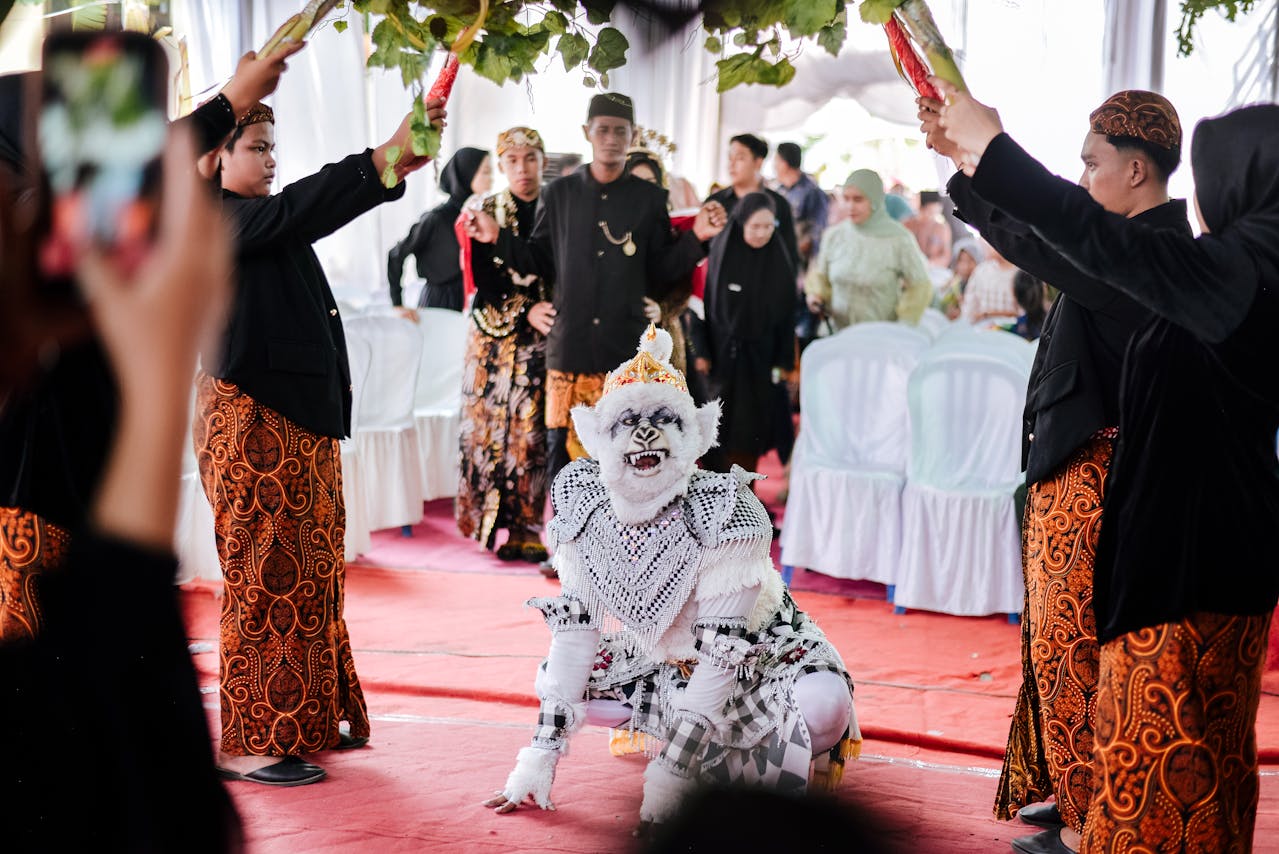
Javanese traditional wedding (credit: pexels.com)
Although Javanese primbon is rooted in ancient tradition, it does not mean that it cannot be integrated into modern life. Here are some ways in which Javanese primbon can be integrated into the context of modern life, especially regarding marriage:
1.Digital Primbon Application
Development of smartphone applications that facilitate the calculation of weton and interpretation of primbon. This allows the younger generation to access traditional knowledge in a way that is more familiar to them.
2.Online Consultation with Primbon Experts
Online consultation services with primbon experts, allowing couples to gain insights without having to meet in person. This is especially helpful in the digital era and during the pandemic.
3.Integration with Modern Wedding Planning
Modern wedding planners who integrate elements of primbon into wedding planning, creating a unique blend of tradition and modernity.
4. Psychological Approaches in Interpretation
Interpreting the results of primbon with a modern psychological approach helps couples understand themselves and their partners better.
5. Primbon as a Decoration Theme
Using elements of primbon as inspiration for wedding decorations, creating a unique atmosphere rich in meaning.
6. Education Through Social Media
Spreading knowledge about primbon through social media platforms, making it more accessible and appealing to the younger generation.
7. Integration with Digital Calendars
Developing a digital calendar that integrates weton calculations and auspicious days according to Javanese primbon.
8. Modern Workshops and Seminars
Organizing workshops and seminars that discuss primbon from a modern perspective, combining traditional insights with contemporary understanding.
9. Academic Research
Encouraging academic research on primbon, analyzing its relevance in a modern context and its potential benefits in various aspects of life.
10. Integration with Pre-marital Counseling
Incorporating elements of primbon into pre-marital counseling sessions, providing a cultural perspective in wedding preparations.
With these approaches, Javanese primbon is no longer seen as an irrelevant ancient tradition, but rather as a cultural heritage that can adapt and provide value in a modern context. This integration allows a new generation to appreciate local wisdom while still living according to the demands of modern times.
14. Conclusion
Javanese weton calculation for primbon marriage is a cultural heritage rich in meaning and philosophy. Although rooted in ancient traditions, Javanese primbon still holds relevance in the modern context, especially as a means to preserve cultural identity and strengthen family bonds. The process of calculating weton and determining auspicious days for marriage is not just an empty ritual, but a reflection of profound local wisdom about harmony between humans, nature, and time.
It is important to remember that the use of primbon in the context of modern marriage should be done wisely and flexibly. The results of primbon calculations should not be regarded as absolute law, but rather as guidance that can be adjusted to the needs and conditions of each couple. What matters most is how couples can take positive values from this tradition, such as caution in making significant decisions, respect for ancestors, and the importance of mental preparation before entering married life.
In the modern era, the integration of Javanese primbon with technology and contemporary understanding opens new opportunities to preserve and appreciate this cultural heritage. Digital applications, online consultations, and interdisciplinary approaches to studying primbon are some of the ways in which this tradition can remain relevant and appealing to younger generations.
Ultimately, the decision to use Javanese weton calculations in marriage returns to the personal choice of each couple. What is most important is how they can build a strong foundation for their marriage based on love, commitment, and mutual understanding, with or without guidance from primbon. The tradition of weton counting can be one way to enrich the journey of marriage with a deep cultural and philosophical nuance, as long as it is understood and applied wisely.
(kpl/dhm)
Disclaimer: This translation from Bahasa Indonesia to English has been generated by Artificial Intelligence.
